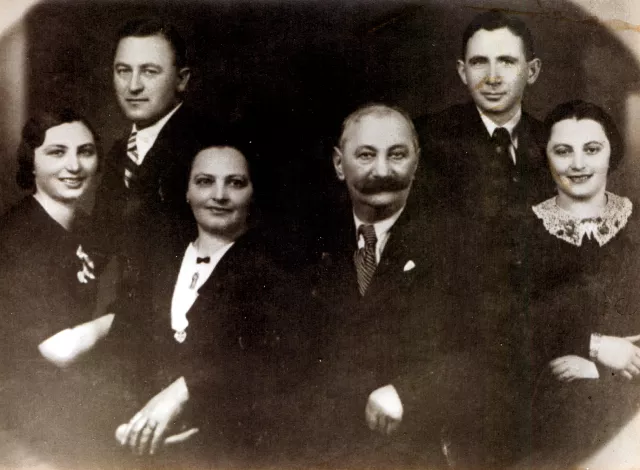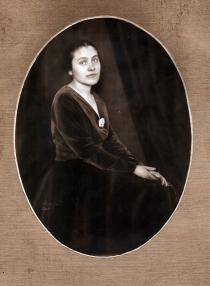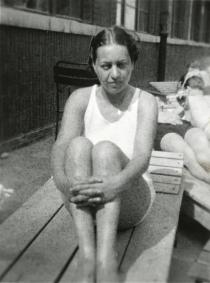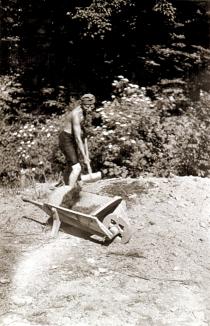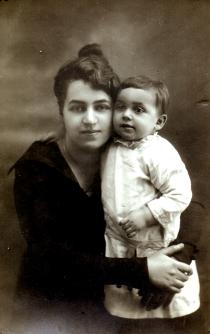Kati Andai's uncle Gyula Erdos and his family
Uncle Gyula and his family. Gyula and his wife are in the middle. On the is their daughter Ilonka and her husband Jeno Dringler and on the right their other daughter Piroska with her husband Lajos Javor.
Gyula wasn't a graduate but remained at home in Felpec, and ran the family farm. Not alone, of course; he had farm-laborers. He was entirely a man of the land. He cultivated all kind of things: vegetables, wheat, cereals. He had horses as well, and pigs, too. Later his brother called him to manage the mill. Gyula was two meters tall and blond, and had a gigantic mustache, he sure didn't look Jewish. He became a real farmer, but he was a nice man.
He played the zymbalon in the evenings, when he had time. He got married to a girl from a family of country traders. His wife worked around the house, with the animals in the garden, and managed the employees. They had two daughters. One of them, Piroska, got married to a veterinarian.
And everything, including the fact that I got some education, I owe to them. Her husband was an amazingly educated and curious man. He made himself a radio with his own two hands. I adored him and was amazed by him. It was he who put books into my hands, saying 'You should read this for this or that reason.' He warned me not to be such a committed socialist, because this ideology had its drawbacks as well. They both were killed in the war. Some people said that maybe Piroska would have survived Mengele, because she was healthy. But she died because she held the child of the woman next to her, in order to help her because the woman couldn't walk any more; they sent her immediately into the gas. The other daughter of uncle Gyula, Ilonka, used to work in Kapuvar as a typist in the mill's office. Ilonka's husband was killed in the forced labor service, but she came home from the deportation. She got married again to a drayman, and in 1956 they moved lock, stock and barrel to England; they carried everything with them, even the last coal-shovel, because they had a horse, car and truck. Gyula with his wife was also killed in Auschwitz.
